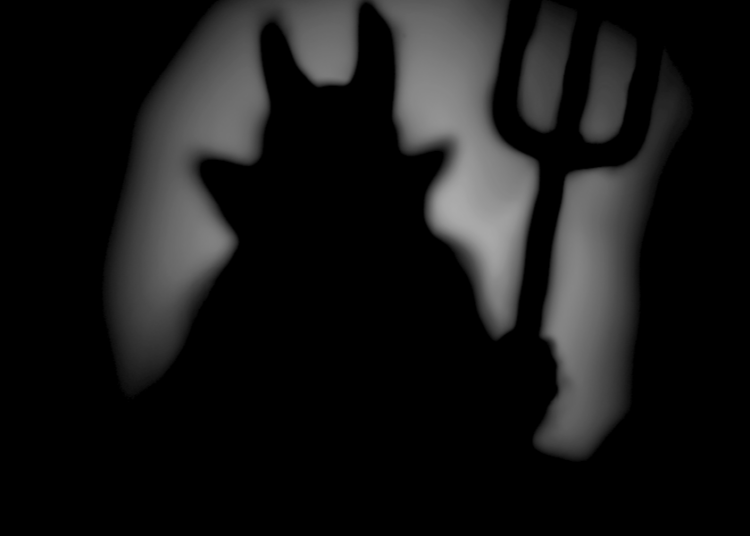I’m old enough to remember the outcry over Elvis. The appearance of the hip-swivelling singer was for some a harbinger of the downfall of society. We saw the same reaction to the emergence of Beatlemania. I can remember Mary Whitehouse and her opposition to the cultural revolution of the 60s which swept the West. And I can remember the derision, ridicule and even hatred she encountered. How we atheists laughed: ‘Those crazy Christians, just because they don’t like something they want to stop everyone else from enjoying it.’
Today the early 60s seem a time of almost idyllic innocence and few can seriously say Mrs Whitehouse’s slippery slope prophecy was wrong. Fast forward to 2024 and just about every social value of that time has been bulldozed out of the way: we live in a society where morally anything goes with perhaps the exception of paedophilia (for the moment), and those ‘crazy Christians’ can be arrested when sharing their faith or praying on the street.
2024 has hardly begun and we find Amazon, the world’s premier retailer, highlighting a new product. The adult animated musical comedy Hazbin Hotel tells the story of the princess of Hell, Charlie Morningstar. Hell has an overpopulation problem, an all-too-believable premise. So once a year Adam and the angels descend from heaven to cull demons. To avoid this, tender-hearted Charlie decides to solve Hell’s overpopulation problem: she will open a halfway house where demons can be rehabilitated and by working hard at their morality can go to heaven.
The backstory is that when God created the Earth, he created Adam with Lilith, not Eve, to be his companion. But that awful unreconstructed patriarch Adam tried to boss feminist Lilith around, and she wasn’t having any of that. She voluntarily left the Garden of Eden because she wasn’t prepared to tolerate patriarchal domination.
Lucifer is not the satanic creature of the Bible, rather he is a happy-go-lucky ‘dreamer’, a free-wheeling non-conformist who got on the wrong side of grumpy old God and his thuggish enforcers, the angels. When the pair met Lucifer was attracted to Lilith’s independence and the pair fell in love.
This made God angry and he imprisoned them in Hell. Here Lucifer, being male, became depressed and took to his bed, but being female, ‘Lilith thrived’. Then God, in what we are assured was a ‘truly heartless move’, made war on Hell, destroying demons in an annual ‘extermination raid’. Charlie Morningstar, Lucifer and Lilith’s lesbian daughter, runs a halfway house in Hell trying to rehabilitate outcast demons and make them acceptable to heaven.
We have Amazon, one of the most powerful companies on the planet, producing a cartoon series denigrating God whilst celebrating a happy Lucifer and Lilith, who is portrayed as a kind of patron saint of feminism. The myth of Lilith holds that she was Adam’s first wife while Eve was her replacement. Although historically Lilith was considered evil for becoming a demon, in recent years she has become an icon of feminism. The mythical Lilith has been transformed into a female symbol for autonomy, sexual choice, and control of one’s own destiny.
The devil is an increasingly accepted subject in pop culture. When queer singer Sam Smith appeared in satanic costume, his fans rushed to defend him. This is no new phenomenon. There is academic literature showing how in pre-Revolutionary Russia there was an increasing interest in the demonic amongst the population generally, especially amongst the elites.
We could look at this as secularists and dismiss it as a sign of the decadence of the late Romanov court and its influence. We could also point to it as an example of the failure of the Russian Orthodox Church. However, it is true that the cultural elites of Russia, who did not necessarily believe Lucifer actually existed, nevertheless admired the rebelliousness he symbolised and saw him as heroic, an independent rebel to be admired. This is significant in attempting to understand the way in which the Russian elites supported the revolutionaries who would ultimately destroy them in the most brutal manner.
On the other hand remembering Ephesians 6:12, ‘For our struggle is not against flesh and blood, but against the rulers, against the authorities, against the powers of this dark world and against the spiritual forces of evil in the heavenly realms’, a Christian might hold that those dabblers in the occult opened the door to the forces of chaos and destruction which in the Revolution destroyed everything before them.
However we view the influence of the popularity of the demonic in late imperial Russia, it is troubling that demonology is becoming ever more prevalent in mainstream culture in the West today. That Amazon is producing an ‘adult’ cartoon series which portrays Lucifer and Lilith as free-spirited victims of an absolutist mean-spirited God is disturbing. Amazon would not be doing this if they didn’t think there was a profitable market for it.
Whether or not we believe in the existence of the satanic, we have to be aware of the implications for the stability of society when we celebrate the disruptive, the overthrow of cultural norms and the relentless pursuit of the transnormative and ‘alternative’.
What is the Christian reaction? We should have more to say than ‘Have nothing to do with this.’ Whatever else you say, please do not say, ‘It was ever thus – people overreacted to Elvis way back when.’
This article appears in A Grain of Sand and is republished by kind permission.

